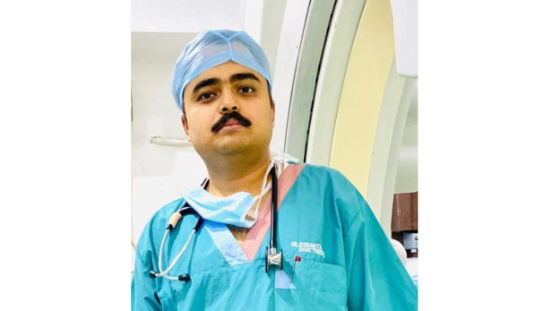- Home
- Speciality specific Q&A
- Cardiology
- Heart Disease
I've been really anxious about something that's been going on with me. I got my first dose of the Covishield vaccine on the 13th of last month. The first couple of days, I had a fever and body pains, which went away pretty quickly. But then on the third day, I started having this sharp chest pain on my lower left side, so I went to a cardiologist. They did an ECG and a 2D echo and said everything looked normal, probably just muscle pain or acid reflux, and gave me some meds like prantoprazole and paracetamolchlorzoxazone, which seemed to help at first. But now, almost two weeks later, the chest pain came back for an hour and went away after I took prantoprazole. Then my left arm started hurting, and that hasnt stopped. I don't have the chest pain anymore, but the arm ache is persistent. I'm worried if this is related to the vaccine or just acid reflux like they said, or if it could be something more serious like myocarditis or pericarditis. I've been Googling a lot and getting more concerned. Can you help? What's really going on with me?
I've been really anxious about something that's been going on with me. I got my first dose of the Covishield vaccine on the 13th of last month. The first couple of days, I had a fever and body pains, which went away pretty quickly. But then on the third day, I started having this sharp chest pain on my lower left side, so I went to a cardiologist. They did an ECG and a 2D echo and said everything looked normal, probably just muscle pain or acid reflux, and gave me some meds like prantoprazole and paracetamolchlorzoxazone, which seemed to help at first. But now, almost two weeks later, the chest pain came back for an hour and went away after I took prantoprazole. Then my left arm started hurting, and that hasnt stopped. I don't have the chest pain anymore, but the arm ache is persistent. I'm worried if this is related to the vaccine or just acid reflux like they said, or if it could be something more serious like myocarditis or pericarditis. I've been Googling a lot and getting more concerned. Can you help? What's really going on with me?
I've been really anxious about something that's been going on with me. I got my first dose of the Covishield vaccine on the 13th of last month. The first couple of days, I had a fever and body pains, which went away pretty quickly. But then on the third day, I started having this sharp chest pain on my lower left side, so I went to a cardiologist. They did an ECG and a 2D echo and said everything looked normal, probably just muscle pain or acid reflux, and gave me some meds like prantoprazole and paracetamolchlorzoxazone, which seemed to help at first. But now, almost two weeks later, the chest pain came back for an hour and went away after I took prantoprazole. Then my left arm started hurting, and that hasnt stopped. I don't have the chest pain anymore, but the arm ache is persistent. I'm worried if this is related to the vaccine or just acid reflux like they said, or if it could be something more serious like myocarditis or pericarditis. I've been Googling a lot and getting more concerned. Can you help? What's really going on with me?
It sounds like you are experiencing some concerning symptoms after receiving your Covishield vaccination. The chest pain, especially if it is sharp and on the lower left side, can be alarming. However, since your cardiologist has already ruled out any cardiac issues based on the ECG and 2D echo, it is reassuring. The recurrence of chest pain and the new symptom of left arm aching could be related to muscle pain or acid reflux, as suggested by your doctor. It is less likely to be myocarditis or pericarditis, especially if the cardiac tests were normal. To help with your symptoms, you can continue taking the medications prescribed by your doctor. In addition, you can try using a muscle relaxant and pain reliever like **Myoril (Thiocolchicoside)** along with **Paracetamol** for the left arm ache. Make sure to follow the recommended dosage for each medication. If the symptoms persist or worsen, it would be advisable to follow up with your doctor for further evaluation. Keep monitoring your symptoms and seek medical attention if you have any new or concerning symptoms.


